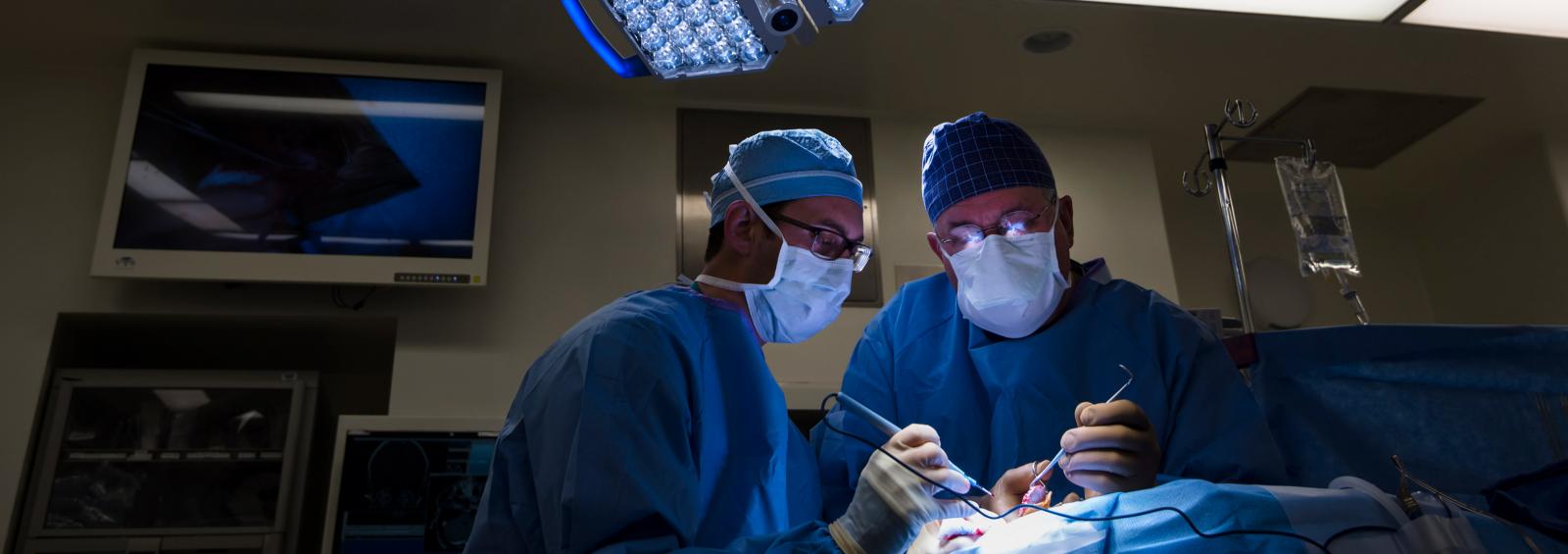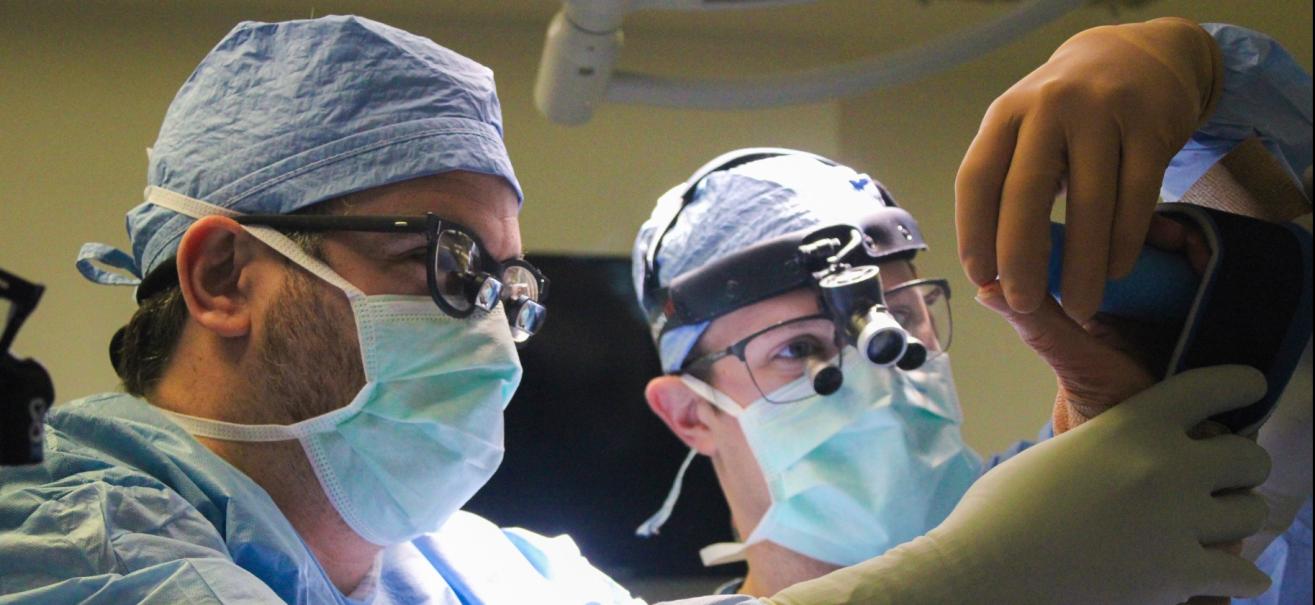Tinnitus or Sound Sensitivity? Here's When to Seek Help from a Hearing ENT
Exploring the Area of Otolaryngology: What to Expect When You Consult an ENT
Otolaryngology, frequently referred to as ENT, encompasses the medical diagnosis and treatment of throat, ear, and nose conditions. For those experiencing related concerns, consulting an ENT professional can provide quality and relief. Comprehending what to expect during such examinations is essential for efficient interaction and care. This introduction will outline key facets of the ENT experience, including common factors for sees and the procedures associated with diagnosis and treatment.

Recognizing Otolaryngology: An Overview
Otolaryngology, typically described as ENT (Ear, throat, and nose) medication, is a specialized branch of medication that focuses on the diagnosis and treatment of problems influencing these crucial locations of the body. This field incorporates a variety of problems, including those pertaining to hearing, balance, respiratory function, and speech. Otolaryngologists are trained to manage both medical and surgical treatments, making use of sophisticated techniques and innovations. Their competence expands beyond typical ailments, dealing with issues such as allergic reactions, sinus infections, and hearing loss. Additionally, they play a crucial duty in the administration of head and neck cancers, providing extensive care customized to private patient demands. Generally, otolaryngology stays crucial for keeping wellness and top quality of life in afflicted individuals.
Common Reasons to See an ENT Specialist
Numerous individuals seek the proficiency of an ENT specialist for a range of factors, reflecting the varied nature of conditions that impact the throat, ear, and nose. Common problems consist of chronic sinusitis, which frequently leads to relentless nasal blockage and face discomfort. Allergies and their associated symptoms, such as itching and sneezing, also prompt check outs to these experts (ENT surgery). Hearing loss, whether steady or unexpected, is another substantial factor for examination. In enhancement, people may look for assessment for throat conditions, consisting of consistent hoarseness or ingesting troubles. Sleep apnea, characterized by disturbed breathing throughout rest, is often dealt with by ENT experts too. Each of these conditions highlights the importance of specialized care in taking care of intricate ENT-related health and wellness concerns
Preparing for Your ENT Visit
When getting ready for an ENT appointment, it is necessary to collect pertinent info and consider any certain concerns. Individuals must assemble a thorough case history, including previous ear, nose, or throat concerns, surgical treatments, and existing drugs. Recording signs-- such as period, frequency, and intensity-- can offer valuable insights for the ENT expert. Additionally, people ought to prepare a listing of inquiries they desire to ask, making certain that all worries are dealt with throughout the see. Bringing along any relevant clinical records or examination results can even more assist the ENT in recognizing the person's problem. Patients must confirm their appointment details, including area, time, and date, to lessen any kind of final complication. Appropriate preparation can improve the efficiency of the assessment and bring about much better end results.
What to Anticipate Throughout the Consultation
As the assessment starts, the individual can anticipate to engage in a detailed conversation with the ENT professional concerning their signs and case history. The specialist will certainly make inquiries concerning the duration, frequency, and seriousness of signs and symptoms such as hearing loss, nasal congestion, or sore throat. Furthermore, the patient's previous medical problems, drugs, and any pertinent family members history will be reviewed, helping the professional in developing a total understanding of the patient's wellness. The ENT might likewise inquire about way of life elements, such as direct exposure to toxic irritants or allergens. This open discussion develops a foundation for the appointment, ensuring that the person's problems are addressed and setting the phase for any kind of needed analyses or referrals for therapy.
Analysis Examinations and Treatments in Otolaryngology
A more variety of diagnostic tests and treatments are vital in otolaryngology to precisely review and diagnose problems affecting the throat, nose, and ear. Typical examinations consist of audiometry, which determines hearing feature, and tympanometry, analyzing center ear pressure. Nasal endoscopy allows visualization of the nasal passages and sinuses, while laryngoscopy takes a look at the throat and vocal cords. Imaging methods, such as CT scans and MRIs, offer comprehensive sights of head and neck frameworks. Allergic reaction screening may likewise be conducted to determine triggers for sinus or breathing problems. These analysis devices allow ENT specialists to develop a complete understanding of patients' problems, making sure customized and effective monitoring check my reference plans. Proper diagnosis is essential for effective treatment results in otolaryngology.
Therapy Options Supplied by ENT Specialists
ENT professionals provide a selection of treatment alternatives customized to resolve particular conditions influencing the nose, ear, and throat. These therapies vary from conservative techniques, such as medicine and way of living modifications, to even more intrusive procedures. As an example, allergies may be taken care of with antihistamines or immunotherapy, while chronic sinusitis might require nasal corticosteroids or sinus surgical procedure. For hearing loss, ENT experts typically recommend hearing help or surgical treatments like cochlear implants. In situations of throat problems, alternatives can consist of speech therapy or procedures to eliminate blockages. Additionally, they may give support for taking care of sleep apnea, including the use of CPAP tools or surgical treatments. Generally, the objective is to enhance people' lifestyle with personalized care and reliable therapy approaches.
When to Seek Follow-Up Care With an ENT
Acknowledging when to look for follow-up care with an ENT specialist is essential for taking care of ongoing signs and symptoms or problems related to ear, throat, and nose conditions. Patients ought to consider scheduling a follow-up appointment if signs and symptoms continue in spite of first treatment, such as chronic ear discomfort, nasal congestion, or throat discomfort. Changes in hearing, equilibrium issues, or uncommon nasal discharge may also necessitate more analysis. Furthermore, if a client experiences adverse effects from suggested medicines or has actually gone through a surgical procedure, follow-up treatment is very important to find here keep an eye on recovery and resolve any kind of concerns. Timely appointments can ensure effective administration of conditions, avoid prospective problems, and offer comfort pertaining to one's health. Seeking follow-up treatment promotes aggressive wellness administration in otolaryngology.
Frequently Asked Questions

What Certifications Should I Try to find in an ENT Expert?
When seeking an ENT specialist, one should search for board certification, appropriate experience, and strong individual evaluations. Furthermore, efficient interaction abilities and a thoughtful method can substantially boost the overall therapy experience.
Exactly how Do I Choose the Right ENT for My Needs?
Choosing the ideal ENT expert involves assessing their credentials, experience, and person evaluations (Hearing). It is essential to ponder their communication design and approach to therapy, guaranteeing they align with the individual's specific health demands and choices
Are There Any Kind Of Dangers Linked With ENT Procedures?
The risks connected with ENT procedures may include infection, bleeding, anesthesia problems, and potential damages to bordering structures. People ought to talk about these risks with their medical professional to understand private issues and guarantee educated choices.
How Can I Handle Stress And Anxiety Prior To My ENT Consultation?
To manage anxiety before a visit, individuals can practice deep breathing exercises, imagine positive end results, prepare inquiries in development, and look for assistance from pals or family, cultivating a sense of confidence and peace.
What Should I Do if I Experience Negative Effects From Therapy?
The person should promptly report them to their medical care company if side effects from therapy take place. Modifications to therapy or additional treatments might be necessary to guarantee security and performance in handling their problem - Otolaryngology. As the consultation starts, the client can anticipate to involve in a detailed conversation with the ENT specialist concerning their signs and clinical history. These analysis devices allow ENT professionals to create an extensive understanding of patients' problems, making certain tailored and efficient monitoring strategies. ENT specialists offer a variety of therapy choices customized to attend to certain conditions impacting the nose, ear, and throat. When looking for an ENT specialist, one ought to look for board certification, pertinent experience, and strong client testimonials. Picking the right ENT expert involves assessing their qualifications, experience, and patient reviews